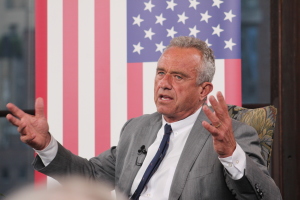Does the “Pagan Playbook” help or hurt your bottom line? An interview with Mike Sharrow of C12

I recently had the pleasure of sitting down and chatting with Mike Sharrow, CEO and President of C12. The first half of our discussion centered around the theology of business, and in the second half we focused on what it looks like when that theology is actually lived out.
Here are a few highlights from our conversation, lightly edited for length and clarity:
Are you using the pagan playbook in your business?
Jerry: "In the first half of our conversation we were a bit abstract. If I worked for a C12 group member, what would I see?"
Mike: "Let's bring this all down to real-world stuff. If we talked to a guy running a manufacturing company with 200 employees, he might say, 'I'm dealing with labor issues, and wage issues, and product issues. All that spiritual theological stuff you and Jerry talk about is great, but help me tomorrow.' At C12, we look at a business and say, 'How do you honor God with the best practices in every area of your business? How would you look at the way you deal with something like contract disputes?'
"For instance, we had [the owner of] a pharmaceutical manufacturing company that looked at the litigious tendency of our marketplace today and said, 'I feel like that's fundamentally destroying value, and I believe we serve a God who is about biblical peacemaking, reconciliation, and who wants to see truth and injustice dealt with in a restorative way.' So when he got wronged by a major multinational company, he literally wrote to them and said, 'There's been a violation of a contract. I technically could sue you for millions of dollars, but as a follower of Jesus Christ I actually want to engage in a process of restoration and mediation on this. I want to right wrongs, but in a way that doesn't destroy jobs and doesn't destroy your company.' That led to a lot of interesting gospel conversations.
"We had a retail company that was selling motorsports and we challenged that business owner: 'You're in an industry that sells products using sexualized images of women to sell motorsports, right? What will it take for you to have human dignity change the way you market and sell?' He was already generous with his money, he already did lots of things with his testimony, but he had not even thought about the fact that he was still using a pagan playbook when it came to marketing. He went back to his company of 100 employees, most non-believers, and said, 'We're going to start marketing in a way that's wholesome and doesn't demean people based on their gender.' His employees asked, 'Why? No one judges you, it's just what our industry does.'"
Jerry: "Right, that's how you sell motorcycles: scantily-clad girls."
Mike: "Yeah, that's how it works. And he went, 'Not for me. I'm accountable to God, and I believe God cares about men and women and views them in high regard. I wouldn't want to represent a woman in a magazine in a way I wouldn't want my daughter to be represented, and we're going to change things.' He didn't make more money because he did that. He had a testimony with every employee about that, and it led to conversations in his industry. So we solve problems and we offer a challenge to bring the gospel into parts of business."
Does it help or hurt the bottom line?
Jerry: "So sometimes it's going to help the bottom line, and sometimes it isn't. But if you're the ultimate point of accountability and you're serving God, then that's kind of up to Him. You have to do the right thing. I would suspect that doing the right thing over the long run probably makes businesses more effective, maybe even more profitable. How many people are in your network?"
Mike: "About 3000."
Jerry: "So you're seeing a lot of this."
Mike: "Yeah, we've done some studies, and by and large it does actually make a better business in areas like better hiring and better retention. We did a 5 year study and found that often, a values-driven, faith-driven company will have better employee engagement, better productivity. That's huge for company performance. There were typically fewer errors, fewer litigation issues. Now that doesn't mean you're devoid of persecution or prosecution from people who may disagree with your faith, but we found across the network that it actually makes companies more resilient, and better at recovering during Covid.
"I think there is a desire, even among people who don't share the Christian faith, to work for some place where there's values and where they're going to experience love and dignity, and where they believe the business has motives that are higher than just personal gain and greed. There's a high distrust for greed in the world today."
Jerry: "There's a fair amount of literature on the importance of intangible assets, and the research I've looked at tells me that probably the most powerful intangible asset is worker satisfaction. I think that might have something to do with workers who stay longer learning more. When you lose a worker, you're losing all that they learned while they were there. So I can see why that would be a value-adder."
The competitive advantage of foot-washing
Jerry: "What's changing now? Obviously we're coming out of Covid, but there's also cultural changes. So looking at now compared to five years ago, how are you and your members changing what you're doing? What's the frontier right now and in front of right now?
Mike: "Well, there's obviously lots we can obviously say about negative things so I'll speak on some positives. I think we're in an era when, greater than ever before, men and women who have no faith are desperately yearning for purpose, significance, value, authenticity, love -- things that, as Christians, we should have the monopoly on, that we should be well-endowed with. There's a massive war for talent right now, talent is the limited commodity of the marketplace today, and they can smell inauthenticity a mile away. [The research institution] McKinsey highlighted, coming out of Covid, how are you going to get employees to come back to work? They've got to believe that they're not just a widget, that they're not just a means for you to make money. If they didn't believe that before Covid, they're going to smell it after Covid."
Jerry: "Right, and they have the leverage now. Entry-level employees have the whip hand over things like unemployment benefits and inflation and all the rest of it. So providence is forcing on owners the challenge of actually having to be foot-washers of entry-level employees. We didn't necessarily do it when we didn't have to. Now we have to. But then again, those who have practice in doing it?"
Mike: "Huge advantage!"
Jerry: "Big advantage!"
Mike: "We're seeing that, we're seeing a tiering of workplaces that had pre-established trust and goodwill, and it was already rooted in the right motives. They were going, 'What do I gotta do to get you to come back to work?' People knew, 'Gosh, that's a place I felt loved and cared for and where I was valued beyond just being someone who made money for the business.' So I think that's going to be here to stay for a while.
"I think we're going to see the question of whether or not we are consistently Christian. It's easy as Christians to put a flag out on certain topics but there's a question of whether we're going to be consistent with integrity in all things. Even in this kind of liberal progressive tumult we're having, people are asking, 'What are you for versus just against?' I think we have a chance to be cultural apologetics as business owners. Yeah, the media says Christians are just a bunch of anti- fill in the blanks, but our employees are saying, 'I've seen my boss and the way we care for each other and for those in need in our community, and I've seen the things that get done here.'"
Jerry: "From my view we kind of lost the culture war, but maybe the loss of political power, and in some sense even the loss of the idea of truth, is now forcing us back onto love. Love is the greatest of these to begin with but it's not generally where we start. So first we try power, then we try argument, then after all else, I guess you try love. The other two have been ripped from our hands, and that makes us have the love, or what else can we do? And where else would we do this but in the marketplace, where people are?"
Mike: "During Covid, we served our members a lot and were monitoring how they navigated things. While it was certainly a time of economic and existential threat, the chips were down and your employees are watching to see how you handle things, we saw more people come to Christ in 2020 than any other year. Why? Perfect conditions: You had crisis, anxiety, no cathedrals to go in to ask questions [because] they were all locked up. It's one thing if you just say, 'I love Jesus and I'm #blessed,' when you're making millions of dollars and everything's going great, right? But when you're losing, business is collapsing, you're shutting down locations, you've got uncertainty, but you still have the peace of God, a hope and assurance anchored in something that's not on the news, people begin asking, 'Why are you okay? Why are you caring about me?'
"At a ratio of 2 to 1, our members chose to sacrifice personal wealth to keep people employed and taken care of and truly minister in that crisis. As the economy opened up, employees saw and remembered that and it created a competitive advantage."
Jerry Bowyer is financial economist, president of Bowyer Research, and author of “The Maker Versus the Takers: What Jesus Really Said About Social Justice and Economics.”




























